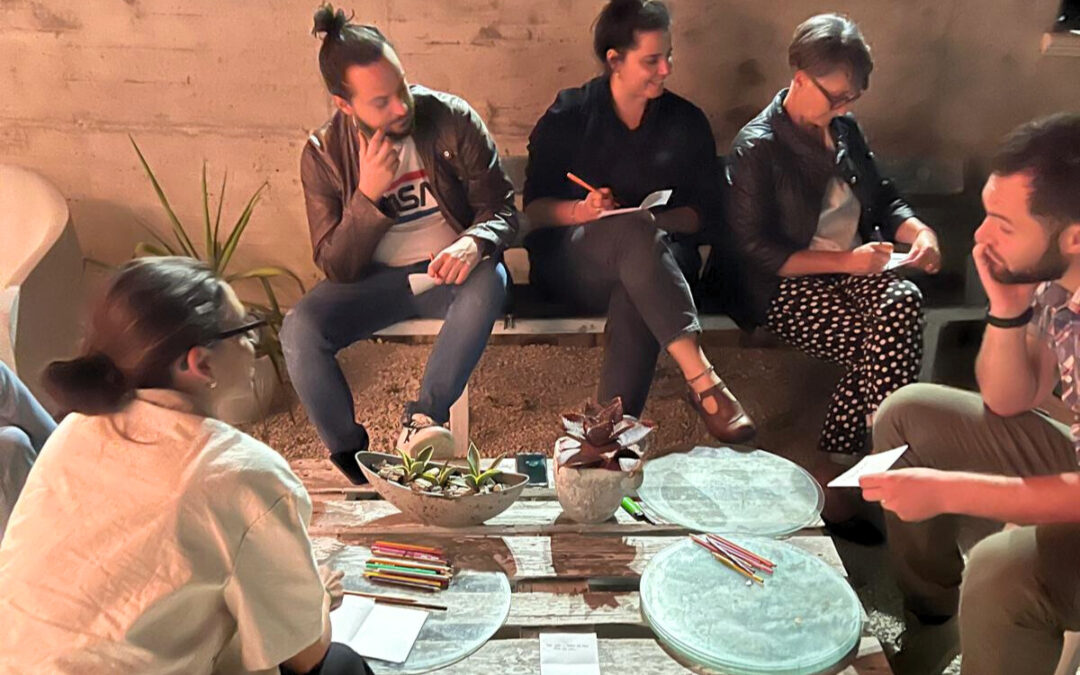As part of the European project Our Story – Storytelling for LGBTQIA+ Community Wellbeing, two local events were organised in Italy by Osservatorio di Genere: the first in the small town of Monte San Giusto and the second in the city of Ancona. Both gatherings explored storytelling as a tool for LGBTQIA+ visibility, emotional wellbeing, and community building — using different approaches tailored to different audiences.
The first activity, held on May 30 in Monte San Giusto, brought together local youth association members, artists, and LGBTQIA+ activists in a creative workshop inspired by the training in Spain. Participants co-created a collective zine using drawing, collage, and personal texts — reflecting on themes like coming out, rural isolation, and the need for ongoing safe spaces.
The morning also included open storytelling moments and dialogue across generations, with an emphasis on shared experiences and grassroots perspectives. The atmosphere was warm, participatory, and creatively rich.
The second event, on June 12 in Ancona, had a more intimate tone. Hosted by Arcigay Comunitas, it welcomed people from migrant communities and participants less familiar with LGBTQIA+ activism. Acknowledging different levels of comfort and visibility, facilitators avoided structured storytelling and instead proposed a cooperative word-based game to encourage connection without pressure.
As one attendee shared: “Even though I was a bit shy at first, the word game helped me open up and connect with people I didn’t know. It felt nice to be part of something.”
There were no mandatory activities, no need to perform. The event created space for quiet presence, non-verbal exchanges, and respectful observation. For some, it was the first time they could share without fear of judgment:
“I had never taken part in an activity where I could share my story without feeling judged. It felt really good to listen to others’ stories and to share my own.”
Despite the differences in tone and format, both events reaffirmed the value of storytelling as a tool for empowerment and inclusion. Whether through collaborative zines or simple language games, the focus remained on creating accessible, safe spaces where stories could emerge naturally — at each person’s own rhythm.
Our Story continues — in drawings, shared words, and quiet connections that remind us we’re never alone in our journeys.







